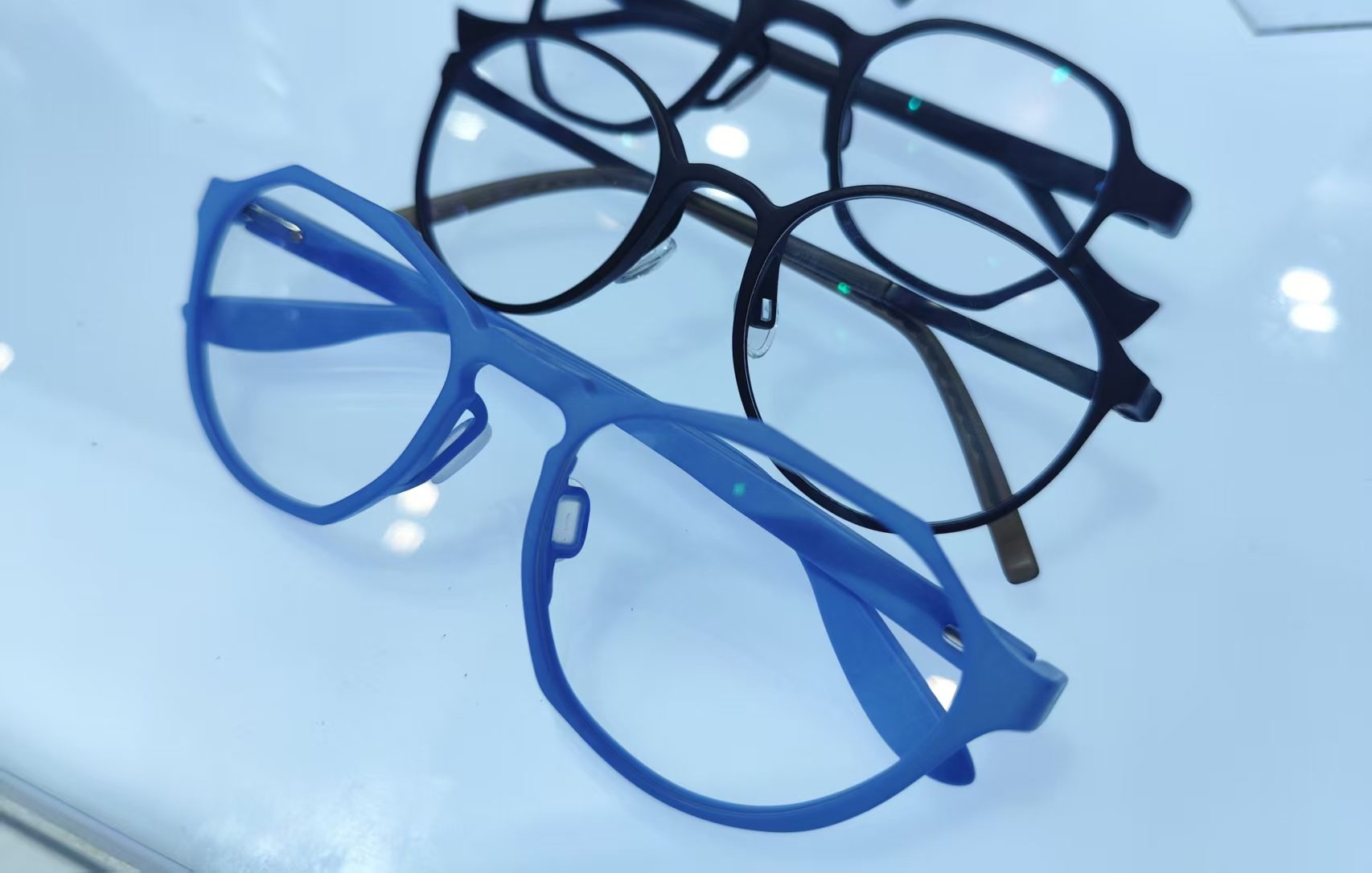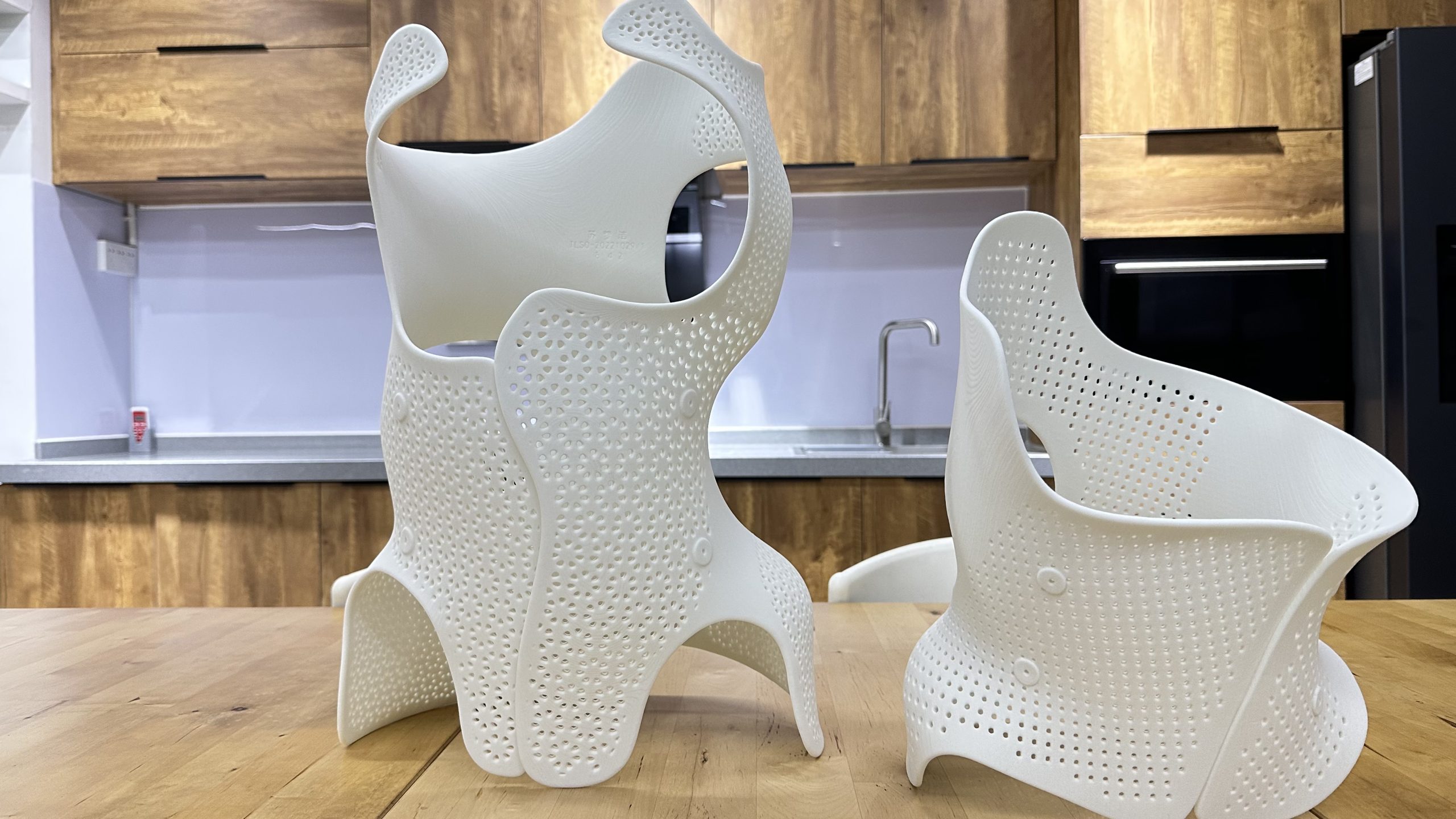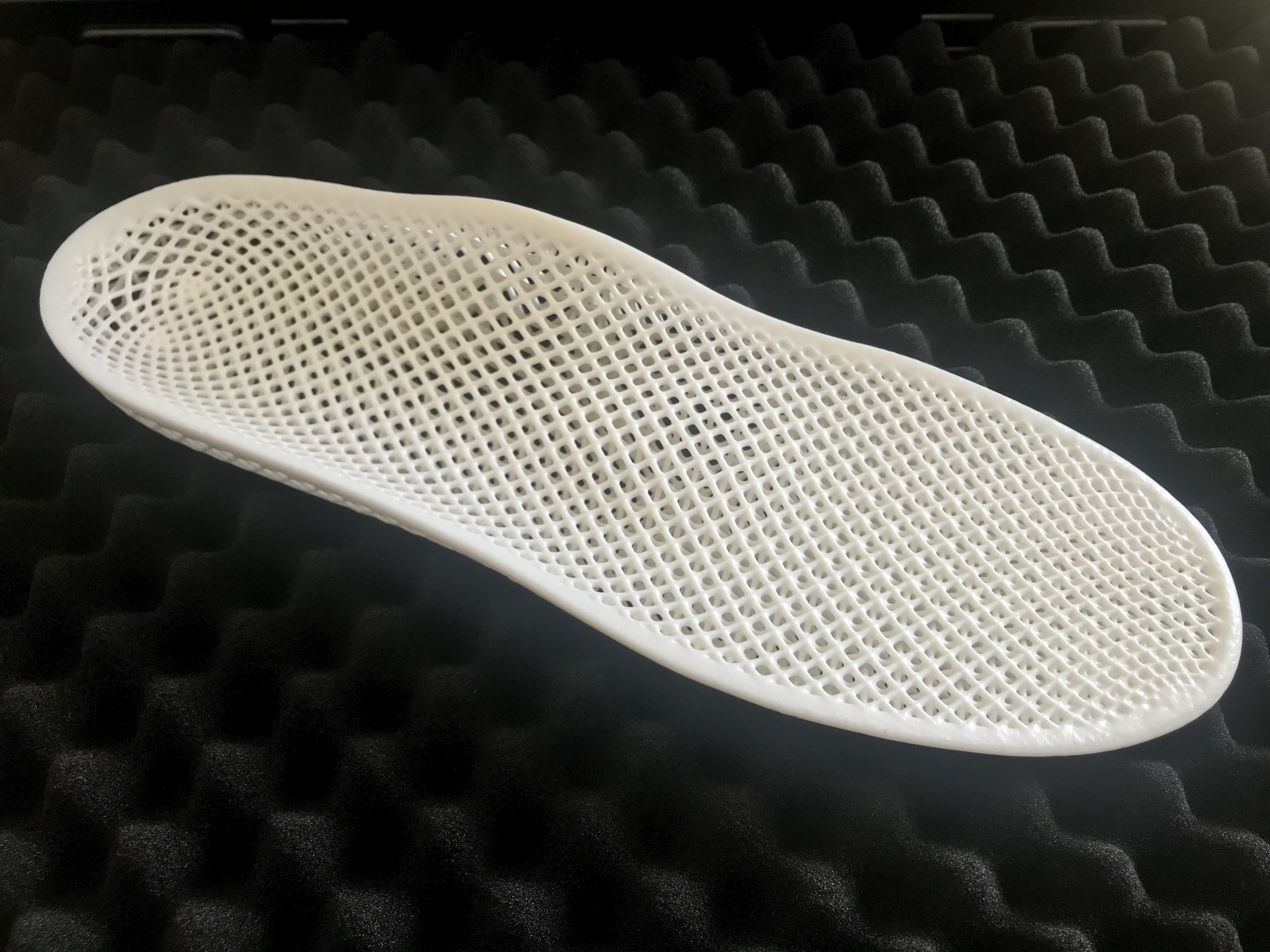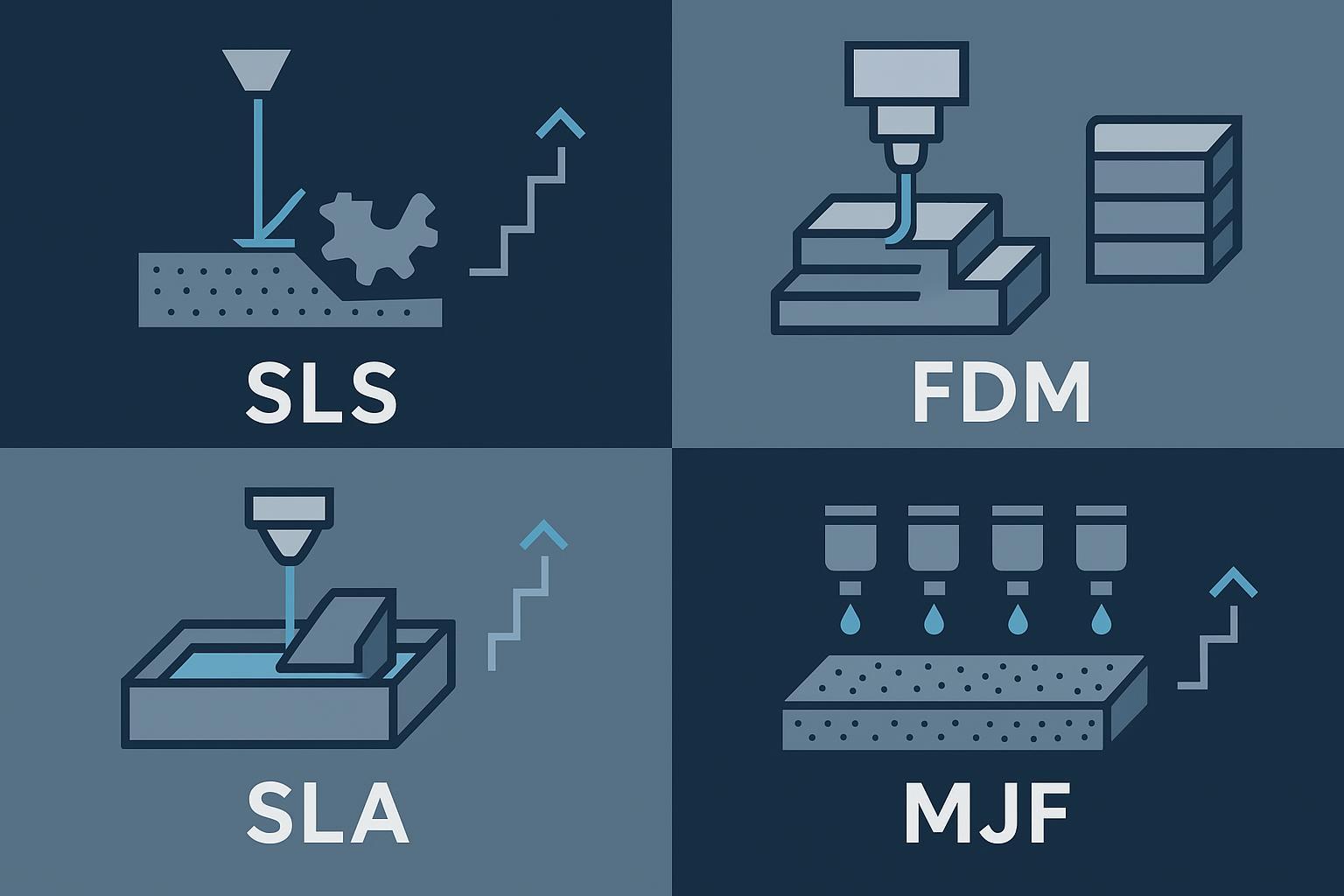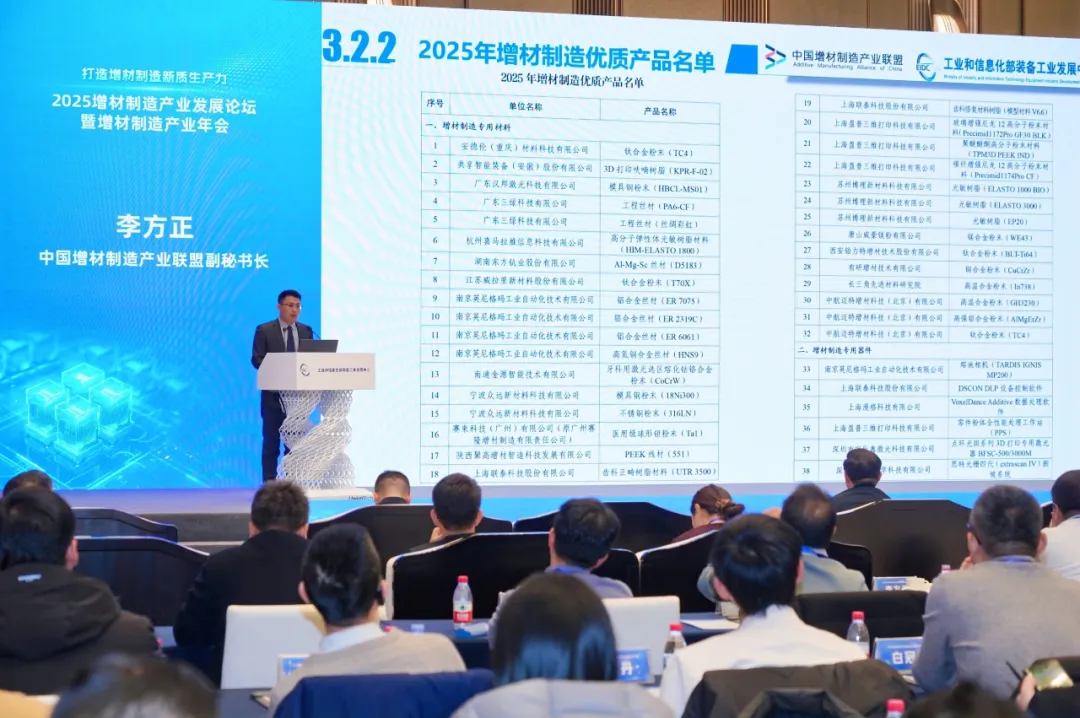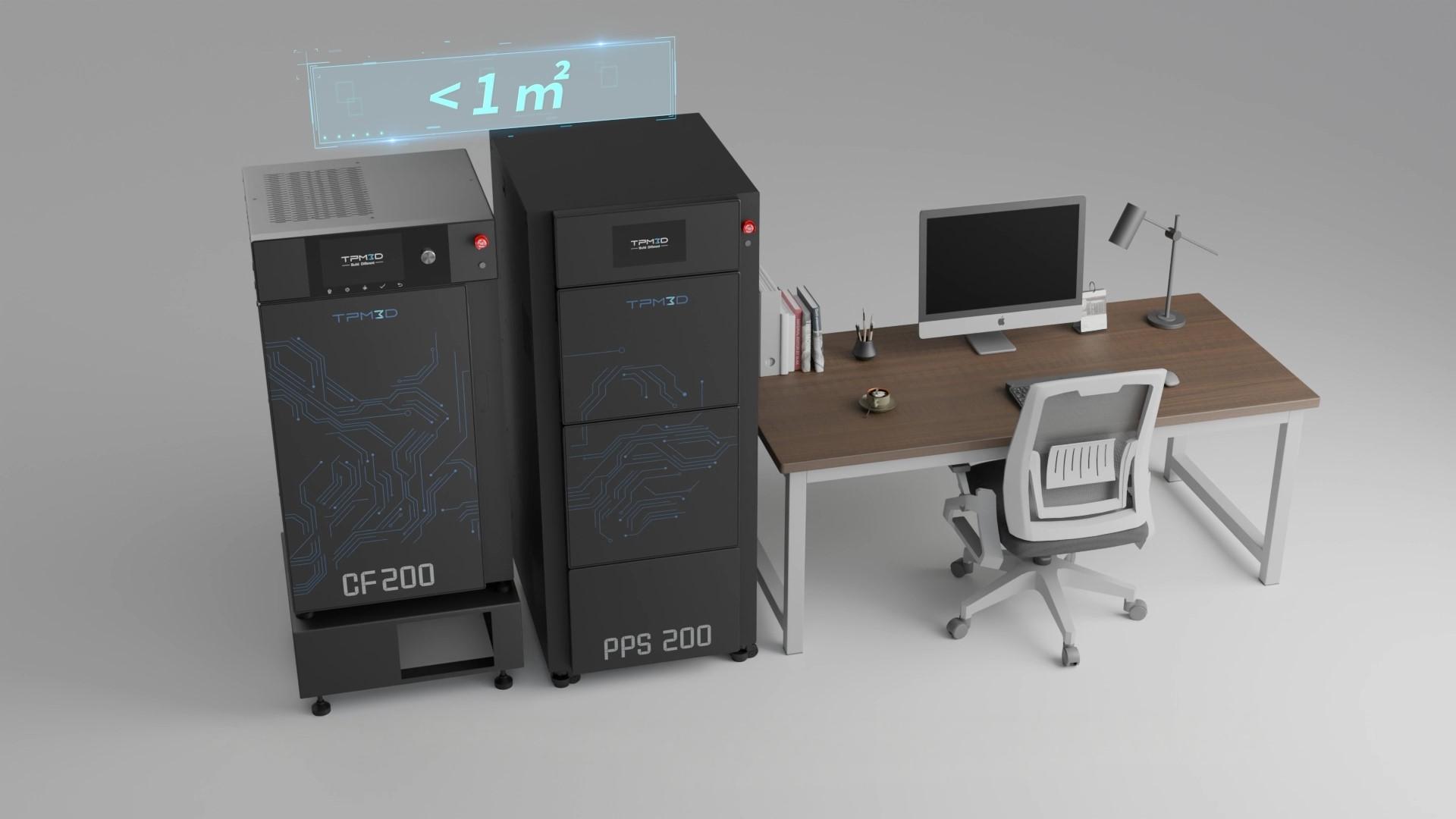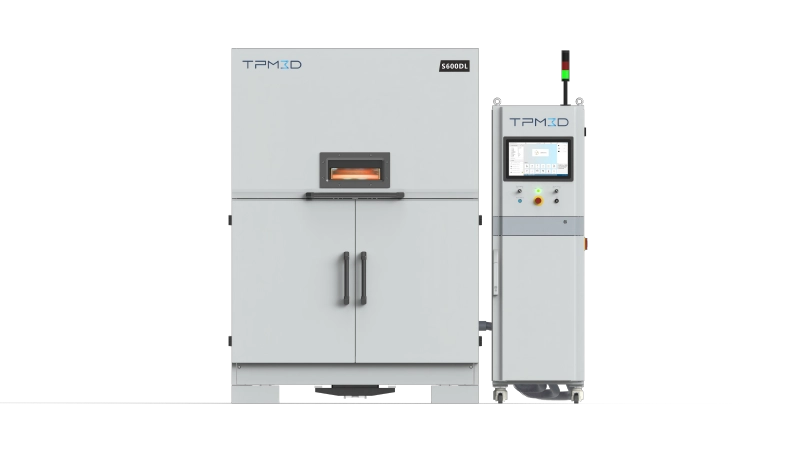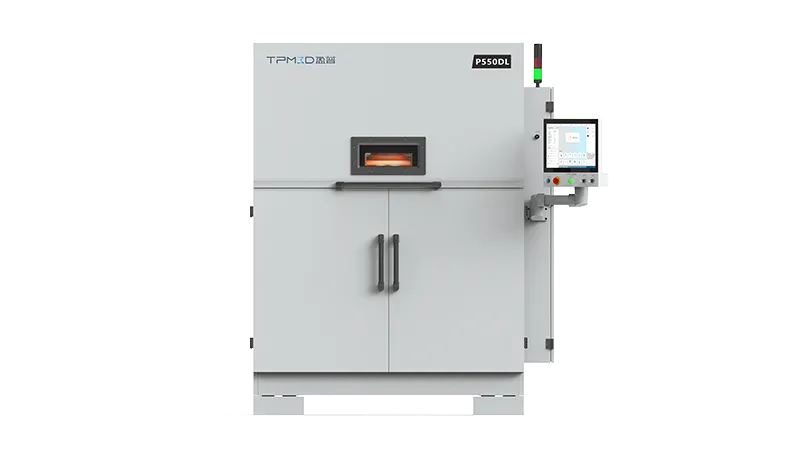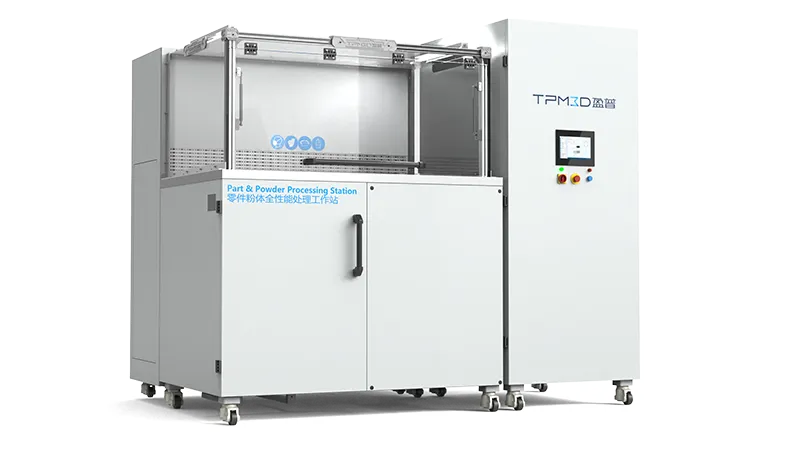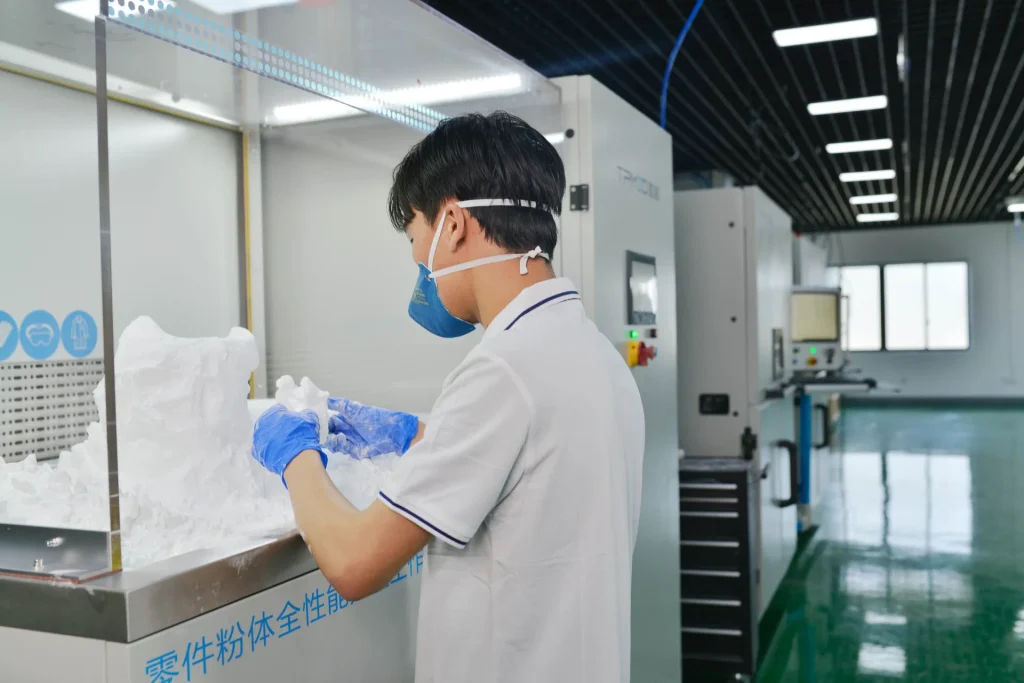As additive manufacturing continues to mature and demonstrate its value across industries, TPM3D is expanding the application of its Selective Laser Sintering (SLS) technology from design verification and prototyping to end-consumer product manufacturing. From performance athletic shoes and stylish eyewear to spinal braces and orthotic insoles, TPM3D offers a complete solution that combines high-performance industrial-grade printers with a wide range of materials—including PA11, PA12, PP, TPU, PEEK, PEKK, and more. This ecosystem enables personalized, efficient production, opening new possibilities for tailored consumer experiences.
Footwear: Digital Integration Reshaping Shoe Manufacturing
Traditional athletic shoe production is labor- and equipment-intensive, involving over 20 processes, from cutting and stitching to injection molding, often taking several weeks. TPM3D leverages SLS 3D printing to deliver a fully digital workflow.
Its Precimid polymer powders, such as TPU, offer excellent resilience and durability. Industrial-grade SLS printers in the P and S series meet international safety standards, while the large-format dual-laser P550DL printer can process powder at 15mm layer thickness and 22 m/s scanning speed, producing 90 shoes per 38-hour run. Digital design eliminates mold constraints, supports complex lattice structures, and requires no support structures, enabling rapid iteration and efficient production.
Eyewear: Lightweight, Personalized, and Limitless
TPM3D’s SLS technology empowers eyewear designers with unprecedented freedom. Complex, customized frames can now be realized without the limitations of traditional manufacturing. Combining 3D scanning with SLS printing ensures a precise fit for fully personalized frames.
Materials such as Precidim1172Pro (PA12), coupled with SLS’s support-free process, produce ultra-light frames weighing as little as 5 grams. This on-demand production model not only delivers unique, comfortable eyewear to consumers but also reduces inventory pressure and streamlines supply chain management.
Spinal Braces: Precision Healthcare and Comfortable Support
In medical applications, SLS enables highly customized solutions. Compared with traditional plaster molding, the “3D scan + 3D print” workflow creates scoliosis braces with high precision and minimal patient discomfort.
Large-format printers, including the P550DL and P360, can produce braces for patients of all ages. SLS-manufactured braces feature robust structures, high precision, and faster production cycles. Using high-performance PA12 (Precidim1172Pro), the braces combine strength, wear resistance, and post-processed smooth surfaces with water- and bacteria-resistant properties. Lightweight designs significantly improve patient comfort while ensuring effective spinal correction.
Custom Insoles: Pain Relief and Improved Gait
For foot conditions such as flat feet or pronation, TPM3D provides scientifically designed custom insoles. Using advanced plantar pressure and gait analysis, the SLS system produces fully personalized insoles from elastic materials like TPU88A.
These insoles offer excellent cushioning, impact absorption, heat and water resistance, and durability. They help alleviate lower-limb pain caused by conditions such as cerebral palsy, diabetic foot, or pronation, while correcting lower-limb alignment and improving gait biomechanics for enhanced stability and comfort.
Recognized Industry Impact
TPM3D’s experience in end-consumer SLS applications has earned national recognition. Its landmark project for mass-customized scoliosis braces was included in the Ministry of Industry and Information Technology’s first list of “Typical Additive Manufacturing Applications,” reflecting the company’s leadership in scalable, customized medical device production.
From everyday shoes and eyewear to health-focused braces and insoles, TPM3D’s mature, stable, and efficient SLS technology enables personalized, high-performance production. By breaking traditional manufacturing limitations and providing a full chain of equipment, materials, and processes, TPM3D empowers consumer product manufacturers to innovate, explore intelligent and flexible production methods, and pursue a more sustainable manufacturing future.


